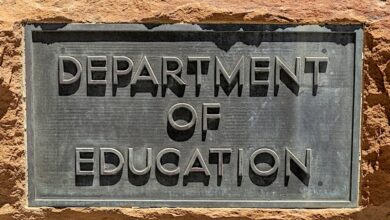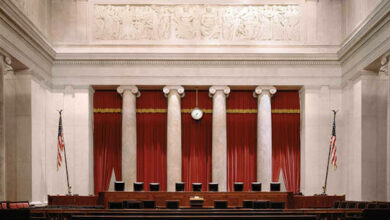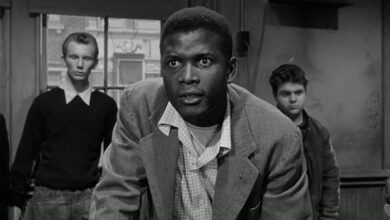In 1953, historian and educator Hilda Neatby ignited controversy by publishing “So Little for the Mind: An Indictment of Canadian Education.” She wanted to know why otherwise bright high school students entering her classes lacked the reading, writing, and thinking skills necessary for university. And why were the more recent high school graduates faring the worst?
Neatby ultimately pinned the blame on John Dewey’s liberal theories of education. “Dewey more than any other single person must be held responsible for the intellectual, cultural, and moral poverty of much modern teaching,” she wrote.
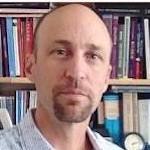
Promoted by education faculties of the day as the new method by which students could develop critical thinking skills, the progressive curriculum was failing to achieve its stated goals. The rhetoric wasn’t matching the reality.
Fast-forward to 2019 and a recent study out of York University reports similar frustrations by university professors about high school graduates’ lack of preparedness. Analyzing undergraduates at five universities, the authors discovered only 44 percent of survey participants were “functionally prepared to do well in their university studies.” An almost equal number of students were deemed “at risk,” and 16 percent were classed as dysfunctional.
READ: Christian education leaders sound alarm of public schools
The takeaway is that Ontario’s high schools are not preparing students for the rigours of university, work, or civic life. “The rhetoric about preparing them with the literacy and critical thinking skills is not matched by the reality,” the authors wrote.
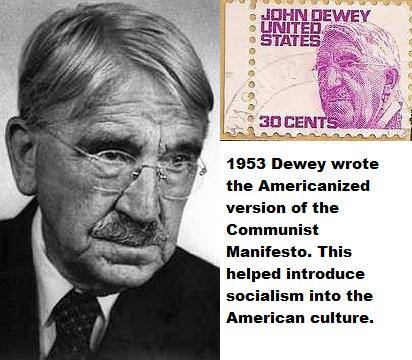 Why are so many high school students underprepared for university? No doubt the story is complicated and the causes many. Social media and “smart” phones plus other issues need to be considered. Nevertheless, just as Hilda Neatby had done 60 years ago, some policy experts blame the continuing influence of John Dewey’s progressive theories.
Why are so many high school students underprepared for university? No doubt the story is complicated and the causes many. Social media and “smart” phones plus other issues need to be considered. Nevertheless, just as Hilda Neatby had done 60 years ago, some policy experts blame the continuing influence of John Dewey’s progressive theories.
Pitfalls of Discovery Learning in Education
Dewey sought to replace the mere memorization of facts with learning that would involve students in “activity” and “discovery.” He placed the child’s interests and motivations at the centre of the curriculum. He thought education should be about socializing the child into an ever-evolving society. He disparaged teaching history and historical writers as a source of enduring knowledge, partly because he was committed to the idea of historical progress. The past was not much more than the museum of discarded ideas. And so Dewey would have students concentrate on the present more than on the rich intellectual heritage of the past.
“No student of Dewey will be led to believe that one great duty of the teacher is to open his pupils to the heritage of his own and of other civilizations,” Neatby complains. “He will be much more likely to consider contemplation of the past as at best a harmless form of escape, and at worst an undemocratic operation.”
Unfortunately, many of these ideas prevail in modern curricula reforms to this day.
Despite its surface appeal, when education professors Paul Kirschner, John Sweller, and Edward Clark evaluated the effectiveness of “discovery learning,” they concluded that it has never really worked. For one thing, Dewey’s implied dichotomy that one can either learn facts or develop critical thinking makes little sense. Instead, critical thinking depends on a student acquiring a body of knowledge. And one can’t simply “Google it.” Facts stored in the long-term memory provide the schema within which we incorporate new knowledge.
So pedagogies that disdain acquiring “mere facts” will continue to disappoint, as American education theorist E.D. Hirsch has argued over the last 30 years. Indeed, Hirsch’s latest book is titled “Why Knowledge Matters.” When you’re compelled to write a book about the education establishment with that title, you know things have gotten bad.
One might think modern education theorists would have ended their romance with Dewey by now. Yet education critic Daisy Christodoulou concludes in “Seven Myths about Education” that there is really little difference between Dewey’s 20th-century theories and what is now being promoted as 21st-century learning. It’s the same old product, just repackaged.
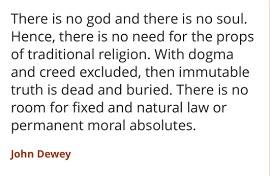 Kirschner, Sweller, and Clark were amazed that discovery learning is like a zombie theory: just when you think it’s dead and buried, it returns in altered form. “Each new set of advocates for unguided approaches seemed either unaware of or uninterested in previous evidence that unguided approaches had not been validated,” they wrote.
Kirschner, Sweller, and Clark were amazed that discovery learning is like a zombie theory: just when you think it’s dead and buried, it returns in altered form. “Each new set of advocates for unguided approaches seemed either unaware of or uninterested in previous evidence that unguided approaches had not been validated,” they wrote.
In my home province of British Columbia, for example, the government announced in 2016 that the entire curriculum, affecting a half-million students, needed to be brought in line with so-called 21st century learning. “Deeper learning is better achieved through ‘doing’ than through passive listening or reading,” the Ministry of Education said. The new curriculum “would allow even more space and time for students to develop their skills and explore their passions and interest.” Yet these glowing statements about the the “new” curriculum are practically direct quotations from Dewey’s “Democracy and Education”—published in 1916!
When several Canadian provinces introduced discovery learning into their math programs in the early 2000’s, student outcomes on international test scores dropped. The C.D. Howe Institute reports that the number of high-performing students was cut in half and those who were performing below average nearly doubled. Rather than seeing this as a warning flag, the B.C. government pushed more discovery learning into all fields of learning, not just math, and in all grades, not just high school.
Returning to a Knowledge-Rich Curriculum
The solution is to return to a coherent, knowledge-rich curriculum, one that puts reading, writing, and math—including memorization of times tables and early introduction to algebra—back at the centre of what students are expected to master. This is not to endorse The Common Core, which suffers from its own problems. Arguably it has actually lowered standards and inflated high school graduates’ sense of their preparedness for university, as is reportedly the case in California.
And while engaging students in their learning is desirable, putting their interest and passions at the centre of the curriculum, as Dewey recommended, seems destined only to stunt them. It cuts them off from areas of knowledge they may become passionate about later. And it tells them to put effort into what they already like to do, not to rise to challenges that may at first seem daunting.
Neatby finds it strange that “self-styled Democrats” like Dewey “should have such contempt for the average pupil [as] to believe him too stupid, too lazy, too blind to his interests and duties to be able to exhibit, even in adolescence, a reasonable readiness to take directions from one competent to give them unless he feels himself ‘interested.’ This is an extraordinary exhibition of democratic faith.” As citizens of a democracy, we are sometimes called upon to do our duty and not simply always follow our inclinations. This too is something students need to learn if they are to take their proper place in a free society.
And it turns out that reading great literature from the past is not an “undemocratic operation.” Reading literature actually helps cultivate good citizenship. A massive study titled “Reading at Risk” conducted years ago by the National Endowment for the Arts correlated less reading by young people with lower levels of civic engagement. Reading literature—not merely Facebook posts or information—fosters intellectual capacities of patience, thoughtfulness, and moral sensibilities in ways that other media simply don’t.
If this is part of the “social capital” that we are losing, the response would seem to be obvious: return to more traditional pedagogies and older, more complex and profound literature in public schools as a counter-weight to the technology and superficial “information” that already engages students, sometimes to their detriment.
If high schools are serious about helping students develop critical thinking and prepare for university, they need to abandon the progressive reforms of John Dewey and return to something more akin to a coherent, knowledge-rich curriculum. This would provide them with the foundation for the critical thinking skills that high schools say they seek to cultivate, and the reality would finally match the rhetoric.
David W. Livingstone, Ph.D., is a professor in the Liberal Studies and Political Studies departments at Vancouver Island University. He has published articles and book reviews on a variety of topics, including Abraham Lincoln’s statesmanship, Jean-Jacques Rousseau’s political philosophy, and Thomas D’Arcy McGee’s contribution to Canadian confederation.



